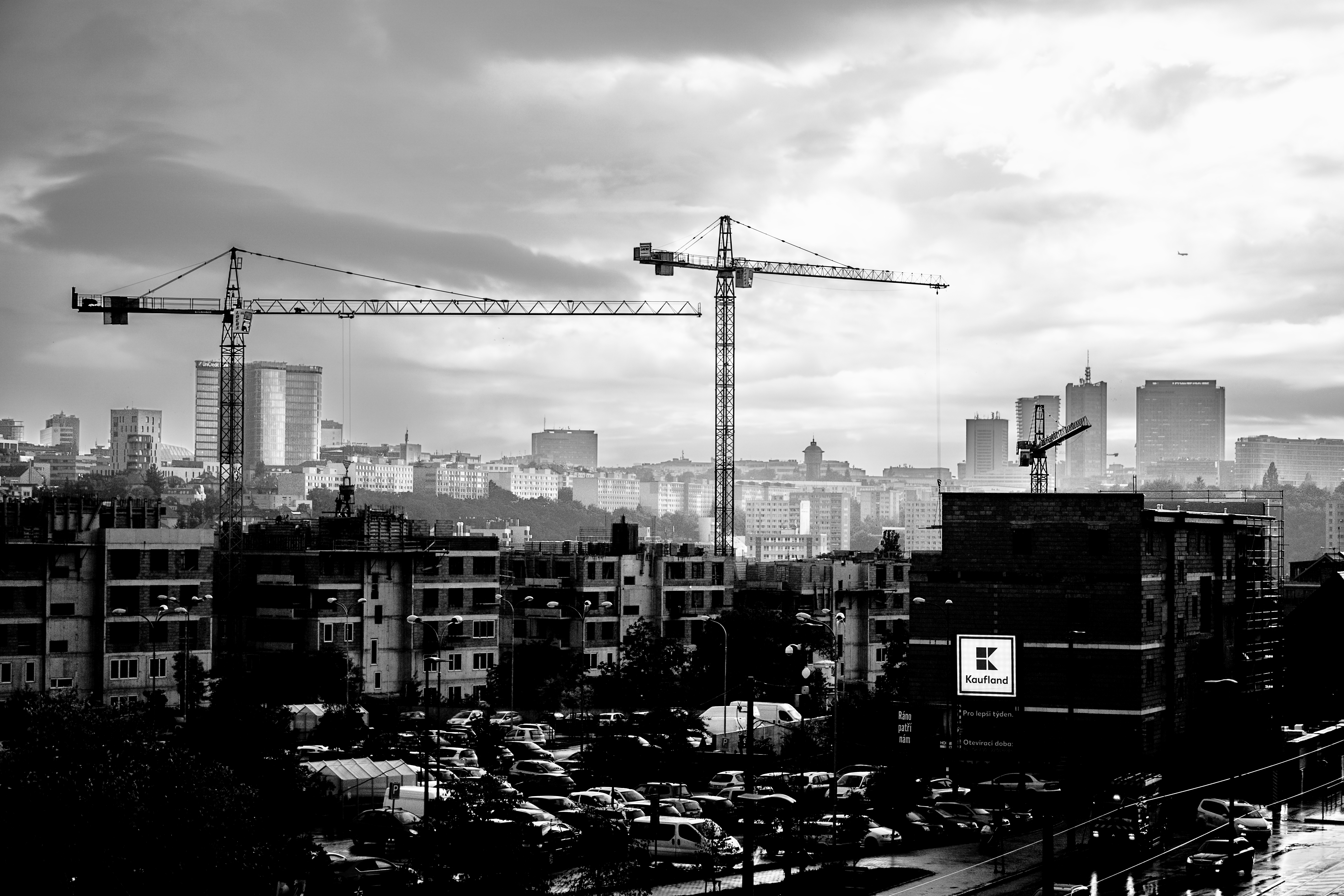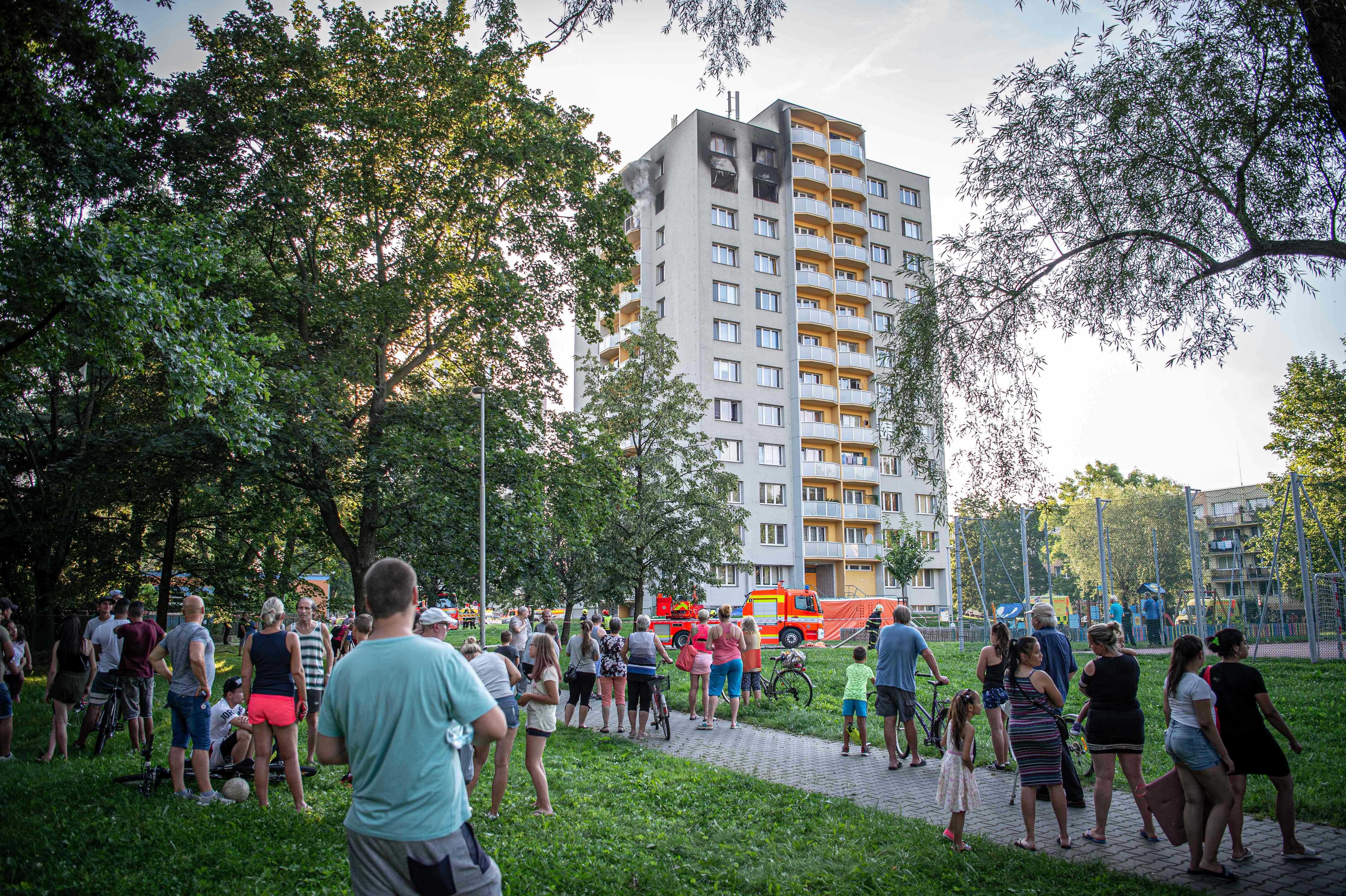The spillover from the country’s housing crisis seeps into all corners of society, disproportionately impacting those on lower incomes.
The coronavirus pandemic may be wiping out jobs, wrecking businesses and depressing economies, but it seems powerless to halt the march of house prices in the Czech Republic.
Driven by cheap money or limited supply, depending on who you ask, the market is in a state of crisis that affects demographics, health and the environment. The momentum is so great that even as the pandemic stalked the economy, prices rose at record rates.
It’s a trap that especially affects the young and those on lower incomes, as the shortage of affordable housing keeps them from clambering onto the housing ladder. Simply put, house prices have become dislocated from incomes.
Czechs seeking to buy an average sized apartment of 70 square metres faced paying over 11 times their annual salary in 2019, more than their peers in any other European country. That’s a ranking they enjoyed for a fourth straight year. In the capital Prague, the average price per square meter rose to €3,395 last year, far above regional peers such as Budapest and Bratislava.
In September, a new apartment in the capital cost an average of 8.45 million koruna (about 320,000 euros), according to The Prague Institute of Planning and Development (IPR Prague). That’s around 1 million koruna higher than in 2019, the city-funded spatial planning body said, noting that “prices have not fallen despite the pandemic.”

Construction site in Prague. Photo: (CC BY-SA 2.0) Daniel Juřena / Flickr
Martin Lux, who heads the Department of Socio-Economics of Housing at the Czech Academy of Sciences, says that the COVID-19 pandemic has, in fact, had the opposite effect, with already red-hot demand rising further. The effect was so pronounced that even as the economy juddered to a halt during the lockdown in the second quarter of 2020, the average house price rose by 3.5 per cent, setting a new 12-year record.
Supply relief?
Some insist that boosting supply will help slow the price rises, and they hope relief may be on the way by doing away with the red tape that limits development. The government could be about to open the floodgates with a new building act.
The process for getting a permit to build new housing is commonly blamed for the crisis. Demanding bureaucracy makes the Czech system one of the most onerous in the world. According to the World Bank, the Czech Republic ranks 156th in the world for ease of acquiring a building permit. Current legislation says it should take 246 days, but developers claim the process usually takes closer to five years or more.
Little wonder, then, that barely a week goes by without a voice from the development industry blaming the crisis on these regulations delaying the construction of badly needed new flats.
“According to the analysis, we are experiencing the most intensive construction boom in the last 10 years, which is, of course, good news. The prices of apartments, however, are not falling, and people must save for an average of 12 years simply to buy an apartment. That is why we urgently need a new building act, to facilitate affordable housing and accelerate the construction process in the future,” said Ondrej Bohac, director of IPR Prague, in a statement.
However, a supply boost could be some time off yet. The draft legislation has been stuck in parliament since the start of the year amid a storm of criticism. The draft act may as well have been drawn up by the development industry for all the environmental and other protections it leaves in place, say critics. Others complain that the proposed legislation seeks to centralise the process under the power of the national government.
“It seeks to strip cities of the power to oversee important aspects of planning,” Adam Zabransky, a Prague city councillor from the opposition Pirate Party who oversees the capital’s housing stock, told BIRN. Branding the draft “a disaster” for Prague, he said “more new flats may be built, but without any say for cities, which know their own particular needs.”
Demand driven
However, many experts say that a bureaucratic-driven housing shortage is an overly simplistic story, largely broadcast by the development industry. “The level of housing per capita in the Czech Republic is similar to that of any EU country,” stated Lux. “It’s prices that are the issue. We don’t have a housing crisis but an affordability crisis. And when we have a boom like we have had for the past several years, that creates a perceived ‘shortage’.
”Zabransky agrees, stating frankly that, “increasing the number of houses won’t solve the crisis.” It’s runaway demand, not insufficient supply, in the driving seat, agrees Lux. Thus it’s a trend led by investors buying to take advantage of the price rises, and powered by cheap mortgages, limited regulation and low taxes on property ownership.
Again, despite the pandemic and statistics that show household confidence dwindling, the Czech Republic is on track to see a record year for new mortgage loans. That comes as the average interest rate is set to fall below the 2 per cent level. The central bank has been warning for some time that banks are taking on too much risk as they throw money at borrowers, but last year it was blocked from enforcing limits.
Zabransky complains that Prague cannot require developers to dedicate a proportion of projects to affordable housing, and that there’s no social housing policy at the national level. Lux notes that property tax is extremely low and slams the recent abolishment of stamp duty.
The continued appetite during coronavirus supports the idea that it’s largely investors, rather than home buyers, taking advantage of these conditions. Data shows that investors are now responsible for over 50 per cent of all apartment purchases in Prague, and there’s little sign that their enthusiasm is drying up.
A survey of development firms published in October showed that they saw no decline in demand in the first half of the year. Despite the second wave of pandemic and continued surge in prices they add that they expect demand to finish the year higher than in 2019, with a further acceleration forecast for next year.
“It sounds like an easy solution to build more housing, but I think that even if you built five times as much housing in Prague, it wouldn’t help,” Lux said. “Investors will simply snap up the bulk of those properties, and those seeking home ownership will still miss out.”

The scene of a flat fire in apartment building, in Bohumin, Czech Republic, 08 August 2020. According to officials, at least eleven people died. Photo: © Lukas Kabon / AFP / picturedesk.com
Indeed, the strong price rises being recorded come despite the fact that the construction of new apartments is more intensive now than it has been for a decade. Close to 14,500 new apartments were being built in September, IPR Prague reported. The 4,800 apartments still available for purchase at the time was the largest number on offer since 2011.
Spillover effects
The spillover from this crisis seeps into all corners of society. Housing shortages play a vital role in changing the way people live and constraining their choices, warn housing charities. And just like the pandemic and accompanying lockdowns, the housing crisis disproportionately impacts those on lower incomes.
Prague has over 2,000 homeless on the streets and tens of thousands paying over 50 per cent of their income on housing – mostly low quality and insecure accommodation in hostels and similar. The issues this raises are manifold. “There are many families in substandard housing and these are unhealthy environments for children,” said Zabransky. “We start to see issues around education and health, and domestic violence is also more prevalent.”
Younger people trying to jump on the housing ladder is another group heavily affected, and alongside lower income families they’re confined to renting or moving to cheaper locations outside Prague and having to commute into the city. This creates serious issues around transportation, infrastructure and the environment, and leaves the housing crisis weighing heavily on public finances.
On a wider scale, the housing crisis also threatens Czechia’s economic development, the OECD suggests. Prague is the engine of the economy, and in particular hosts many of the higher added value sectors that many economists say the country desperately needs to develop. However, young managers, professionals and technicians may head elsewhere if they can’t afford to live in the city comfortably.
Lux, however, is not optimistic that the situation is going to improve any time soon. Rather, he expects Europe’s housing markets are set to see a fundamental change. “If these trends persist, many people in Europe will have to resign their dreams of becoming homeowners,” he said. “For many middle-income people, the only possibility to live in major urban centres in the future will be to become a tenant.”
First published on 15 December 2020 on Reportingdemocracy.org, a journalistic platform run by the Balkan Investigative Reporting Network.
This text is protected by copyright: © Tim Gosling / Reporting Democracy. If you are interested in republication, please contact the editorial team.
Copyright information on pictures, graphics and videos are noted directly at the illustrations. Cover picture: Aerial view of Prague. Photo: © Nikolai Chernichenko / Unsplash.com